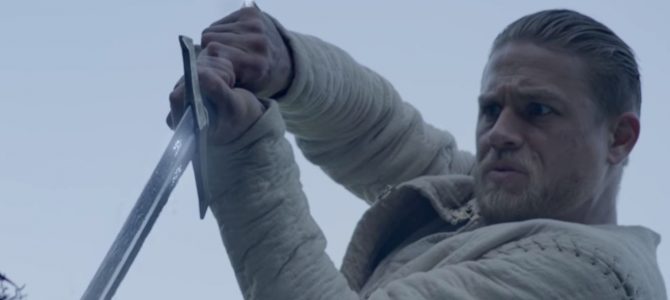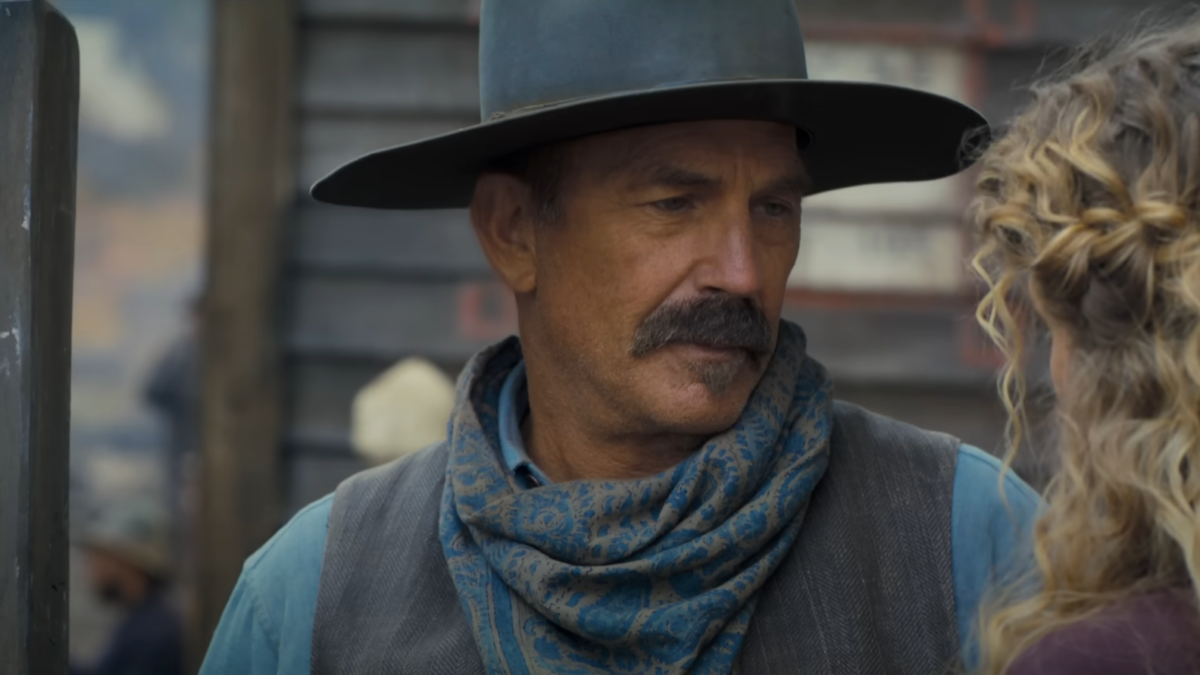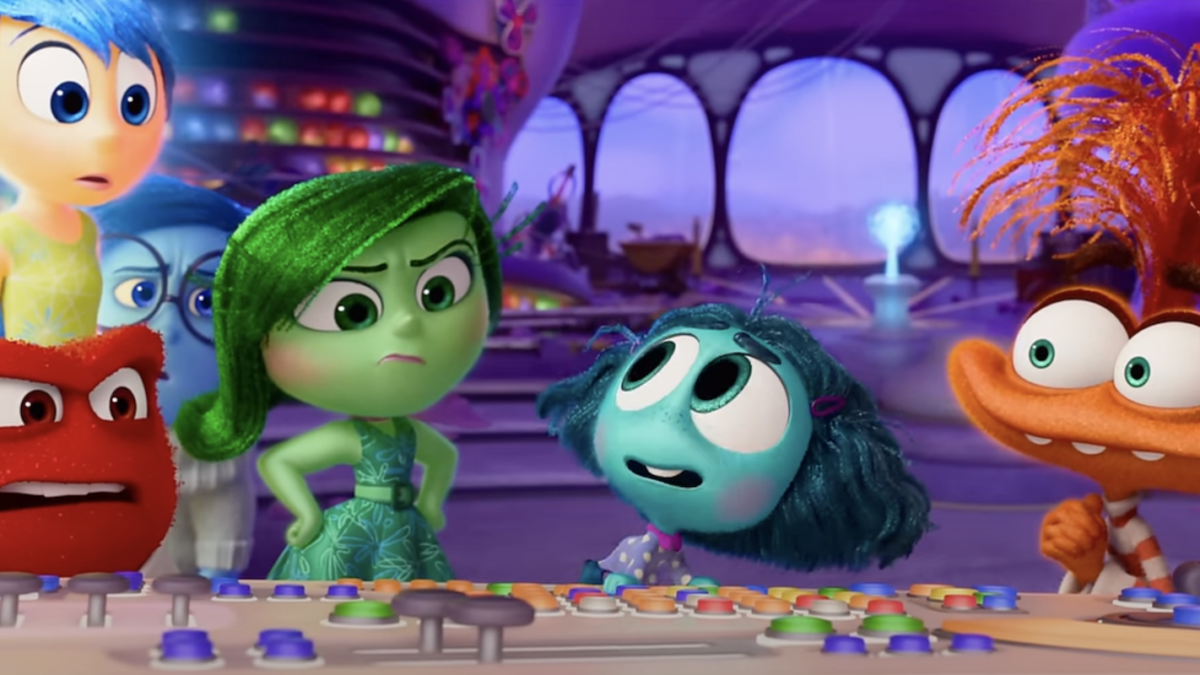
Spoilers follow.
The beginning of Guy Ritchie’s “King Arthur: Legend of the Sword” features gargantuan demon elephants, and a random dude whose eyes glow neon-blue. It’s pretty much all downhill from there.
The plot structure resembles a knock-off version of “The Lion King.” A king is killed by his brother, then the king’s son, after learning who he is, returns to claim his destiny. It’s almost not even possible to spoil the thing, because it falls somewhere between cliché and incoherence.
The movie is more or less decent when considered as a straightforward Hollywood action flick. However, the experience becomes absurd when the viewer remembers he is supposed to be watching an adaptation of an ancient legend. Let’s recall the actual stories about that man and his friends to see why it’s close to a travesty that this new film has taken his name.
As for the Source Material
“Legend of the Sword” has no interest in fidelity to its source material. Ritchie plays a mix-and-match game with various elements from the Arthurian tradition and fantasy literature in general. That wouldn’t be problematic in and of itself. But it becomes a problem when the end result has so little to do with Arthur or the legends that surround him.
Many know it is difficult to identify any one given account of King Arthur as the “real” one. His many varying stories were developed through folk traditions. Geoffrey of Monmouth, a writer from the early 1100s AD, is often credited with making Arthur a familiar mythical figure, through his work, “History of the Kings of Britain.”
The legend developed much further over that century and the next, with many of the later stories focusing less on Arthur himself than on his knights. See, for example, the tale of Perceval and the Holy Grail. But again, “Legend of the Sword” demonstrates only the most minimal familiarity with this literary tradition.
All that Glitters Is Not Gold
Ritchie’s film seems to take “Lord of the Rings” and a mega-dose of “Game of Thrones” as its basic inspirations. One character, for example, can control the minds of animals. (She is nameless, and seems not to be based on anyone from the old legends.) But the film lacks even that sort of subtlety and pacing. The thundering soundtrack and serious faces plainly attempt to convey a sense of profundity, but without any apparent comprehension of what actually makes a human situation profound. The result at times is almost inadvertently comical.
At the end of the movie, a monster snake appears out of nowhere. What? One almost suspects Ritchie used the name of Arthur to assure viewers there are very good reasons for such absurdities. But as far as I know, this snake is a reference to nothing in particular.
Fast cuts define the movie’s filming technique: the cinematographer is a sort of anti-Tarkovsky who seems to have had a few too many cups of coffee. The only possible defense would be that the style means to convey a sense of non-linearity—which would be appropriate, given that myths are said to exist at the same non-rational level of the mind as dreams. But “Legend of the Sword” does not give the viewer a sense that he is dreaming, but one of schizoid fragmentation.
Moreover, the film mistakes wittiness for strength. Numerous scenes and dialogues seem dedicated to showing only how clever Arthur is. This misses the mark. Wit can suggest that one is indirectly saying something profound, or that one is just acting like a jackass.
In addressing real strength, the film just descends into clichés. For example, it suggests the difference between a man and a king is that a king doesn’t “look away.” Nice enough, I guess. But it highlights that “Legend of the Sword” doesn’t know how to mix depth with lyricism, a fusion that is in fact the specific province of myth and legend.
In one scene a tough-looking man insists on staying and fighting a battle from which it would not be possible for him to come out alive. Arthur urges him to escape through a tunnel. The man replies, “I’m afraid of the dark.” This flash of humor contains a great human insight. Unfortunately, “Legend of the Sword” generally lacks such things.
Why the Legend Matters
Modern analytical psychology, especially the school inaugurated by Carl Jung, says myths and legends are powerful expressions of the human unconscious: they tell us things that reason can’t know directly. They are not nonsense, although they do tend to operate via a symbolic language that resembles dream logic. Myths have structure, and those structures say things about who we are. They may not be rational per se, but they are also the furthest thing from arbitrary or random. Jung’s wife, for example, co-wrote a book-length study of the psychological meanings of the legend of the Holy Grail.
Ritchie, however, seems to think legends are nonsense, and therefore anything goes. His movie includes gross sea witches to whom the villain makes human sacrifices. I don’t know who they are. For that matter, the villain himself, Vortigen, seems not to be a major part of the old stories, and there is no record of him being considered Arthur’s uncle.
The film includes the legendary Lady of the Lake, although the average viewer wouldn’t know what to make of her: she’s just portrayed as a random beautiful woman who lives underwater. If you’re not familiar with the legends, you wouldn’t be able to tell whether Ritchie just made her up along with so much else.
In the legends, King Arthur’s birth was complex. The traditional story suggests Arthur was the result of Uther Pendragon’s lust for a woman who was not his wife, meaning Arthur is a bastard. This is significant: in mythical terms, a bastard birth is similar to a virgin birth (“Who’s the father?”). Another key element of Arthur’s story is the love triangle ensnaring him, Guinevere, and Lancelot. But there is no Guinevere in the film. There’s only some girl called “The Mage,” an apparent stand-in for Merlin, except without the inherent resonance of the Old Wise Man archetype.
A Study in Decadence
The problem is not with becoming creative with myths. In a way, that’s what they’re for. But the problem is doing so in such a random and arbitrary manner.
The modern mind has become ill-equipped to deal with the profundity of myth and legend. We tend to imagine that reason has rendered such things irrelevant. Yet the mythical dimension of consciousness is essential to the very nature of man. “Legend of the Sword” could be understood as an example this broader failure. There is a very good reason the legends of Arthur and his circle have captured the imaginations of readers across the ages, proving their enduring value (hint: it has nothing to do with cheap thrills).
“Decadence” refers to a culture going downhill from its zenith, losing the powers and capacities it once possessed and that once made it great. The difference between the original legends of King Arthur and his friends versus the telling contained within Ritchie’s film offers an exemplary picture of decadence. What people used to access through profound literature, we now apparently look for in Hollywood clichés. “Legend of the Sword” does not understand why Arthur was great, and that’s why the movie falls short of even mediocrity.









